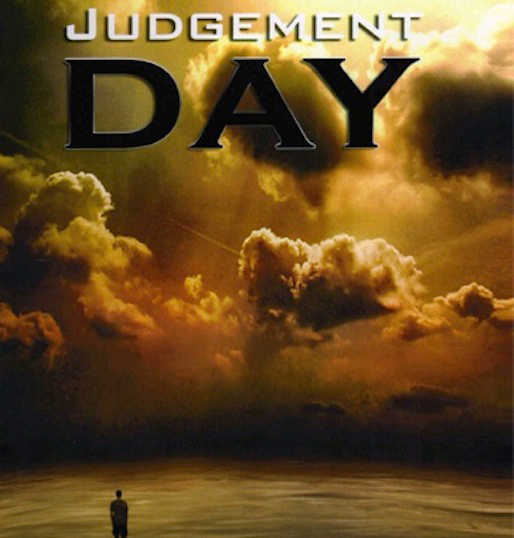FWP:
SETS == HERE/THERE
DOOMSDAY: {10,11}
The lover has given up all hope of even fair treatment (not to speak of kind or affectionate treatment) from the beloved during this lifetime. He's been living in expectation, waiting for justice to be meted out on Judgment Day. Oh, if it were not to be done then, what an intolerable disaster that would be! (For a rare example in which the beloved actually gets her comeuppance in this world, see {40,1}.)
The pleasure of this verse is in its wildly skewed sense of proportion. Most people live in hope of favors from their beloveds in this world, or else they renounce the hostile beloved and find a new one. This lover, however, expects not even justice from his beloved, yet remains obsessed with her and lives in hope of Judgment Day. Most people fear Judgment Day, when their sins will be weighed in the balance; this lover looks forward to it, since it will provide a confrontation with the beloved and some hope of 'justice' at last.
This is a verse in which the beloved seems not to be God; for others, see {20,3}.
Most people worry about their own fate, both in this world
and the next; this lover has only one fear-- that on Judgment Day there would
be no 'justice' for him in his complaint against the cruel beloved. That
would be a real disaster-- and apparently the only one he considers to be
worth even mentioning, much less worrying about. We see the full desperation
of his plight-- the radical unrequitedness of his love, his radical refusal
to abandon it, his recasting of his whole life, from this world to eternity,
in the mold of his passion. We see all this from a single inshāʾiyah exclamation.

Nazm:
The verse is clear. (27)
== Nazm page 27